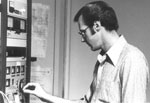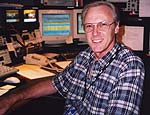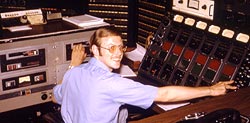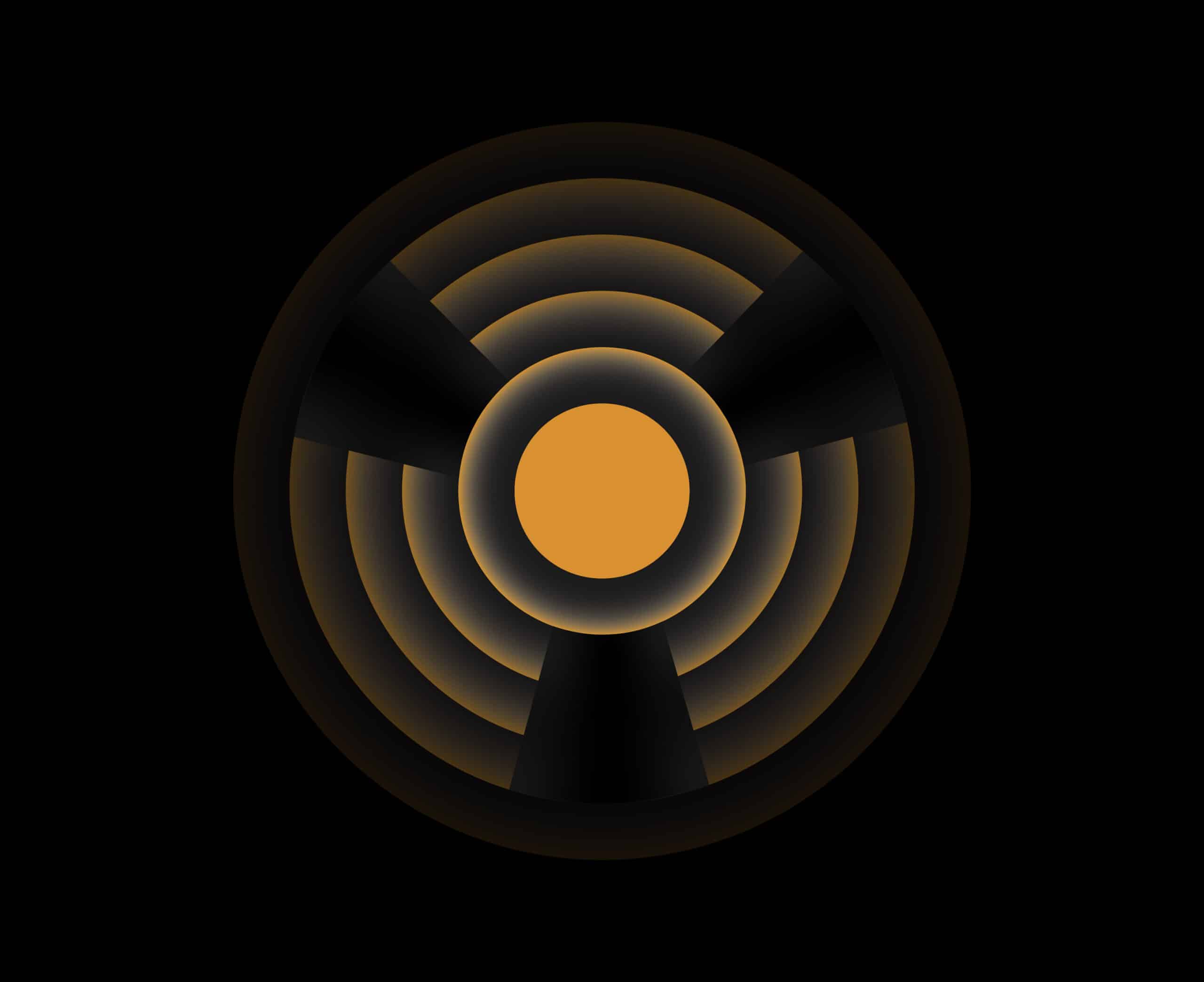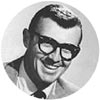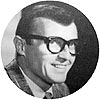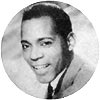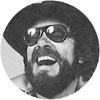The Don Kent Collection
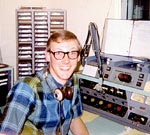
Don on Oldies-formatted KWIZ, 1967 
Don Kent on the board at KNX, 1972
|
Don Kent graduated high school in early 1964 and writes:"I had NO idea what career path to take. During my Senior Year I browsed through several college catalogs and came across "broadcasting" at Los Angeles City College. That sounded like fun. Besides, my dad had been in radio during WWII and it was sort of like following in his footsteps; well, kinda! I did pretty well at it, getting straight A's and a place on the Dean's List, so I figured that I'd found my "calling".
Back in those days I collected a bunch of aircheck tapes from my, then, favorite stations. I studied the techniques for school, but I just liked listening to them, too. Eventually, I connected with others who had done the same and we traded. While I was still in school I took a job doing the news part-time at KBLA in Burbank, CA. That was in 1965. It worked into a job offer from KWIZ AM/FM, Santa Ana, which, so far as I know, was the first all-oldie station anywhere. That ended in 1969 and I returned to the station in Burbank, which was now KBBQ (Country). I HATED the Country format, but by then I had a wife and son and I needed the job (didn't have to turn the monitor up, though!). The P.D. from KLAC, Los Angeles, heard me on the air and offered me a job at his station. Needless to say, I took it. After several months I switched over to the Engineering Department there. The station was co-housed with KMET-FM and I did Production-Engineering for both. In 1970 I moved over to KFWB, Los Angeles, as a Production Engineer. A couple of years later I briefly moved to KNX/CBS but didn't much care for it and returned to KFWB, where I stayed until 1979. That's when I moved over to television, where I did freelance audio work (common in that business) for a short time. That led to a staff offer from KTLA-TV in 1980. I started there doing "doofus work", but moved up the ladder to the position of Senior Engineer and later Crew Chief. Since moving to television my aircheck interests switched to restoration of early videotape recordings. I did all the restorations for the UCLA Film and Television Archive between about 1987 and 2002. In 1988 I won a Primetime Emmy for restoring the earliest television show recorded on color tape; "An Evening With Fred Astaire" (1958). Since then I have done several others, including The Nixon-Krushchev "Kitchen Debate" for the Library of Congress. I'm real proud of how those early shows turned out. Many years ago I collected rock 'n' roll records, but the "sound" changed from what I liked and I hung that up. I still have about three thousand records from back then though. In the intervening years since college, I just put those old aircheck tapes on a shelf in the garage. I haven't listened to them since the early 70's but they still sound pretty good, so enjoy! |
The Repository thanks Don Kent for sharing!
[Description by Uncle Ricky from notes by contributor Don Kent]
Here’s Hour Two of the First and Original History Of Rock And Roll hosted by Robert W. Morgan, the Ultimate Narrator for the debut presentation of what is arguably the greatest Special Feature of the Top 40 era, and the first Radio Rockumentary.
Originally broadcast from 1PM-2PM on February 21, 1969, and recorded by contributor Don Kent, this program defined all the programs that followed. It was the first, conceived and produced by Ron Jacobs, The original Boss Radio Boss. Following the unprecedented success of this legendary broadcast, Jacobs left KHJ later that year.
An interesting comparison for the REELRADIO faithful is the Ray Charles segment that opens this hour and the WNAP Indianapolis Salutes Ray Charles, 1970 exhibit.
This original KHJ Hour includes Gene Weed for Ford, and early R&B superstars Clyde McPhatter, Chuck Berry, The Coasters, Mickey and Sylvia, The Rays, Billy Ward and His Dominoes, and a few mid-charting rarities.
This is the opening hour for the 48-hour special, broadcast Friday, February 21, 1969. It was conceived and produced by Ron Jacobs, The original Boss Radio Boss.
Following the unprecedented success of this legendary broadcast, Jacobs left KHJ later that year.
This REELRADIO exhibit was recorded off-air by contributor Don Kent.
[Description by Don Kent]
This one was recorded at KFWB, at the station, rather than off-the-air.
I copied this from Bill Ballance’s personal tapes. Great Stuff! “Bill Boy” was my all-time favorite D.J.
Bill Ballance died at home Thursday, (September 23, 2004). He was 85. The Associated Press reported that his son, Jim, said Ballance had been in failing health since undergoing quadruple bypass surgery and suffering a stroke in June 2002. Ballance was born in Peoria, Ill. in 1919. He studied journalism at the University of Illinois and served in the U.S. Marines, and worked at radio stations in Los Angeles, San Francisco, Denver and Hawaii. Ballance’s “Feminine Forum” became one of the most popular radio shows in Los Angeles within a year of its 1971 debut on KGBS-AM. The program was considered a forerunner of modern “shock jock” shows.
Bill Ballance, KFWB
[Description by Don Kent]
This one was recorded at the KFWB studios; not off the air, and is a copy of Gene Weed’s personal tape.
The News staff was apparently off that night, as Gene does his own news. There’s a story about Julie London and Bobby Troup’s impending wedding, and another about senator ‘HERBERT’ Humphrey of Minnesota that are interesting to hear now.

